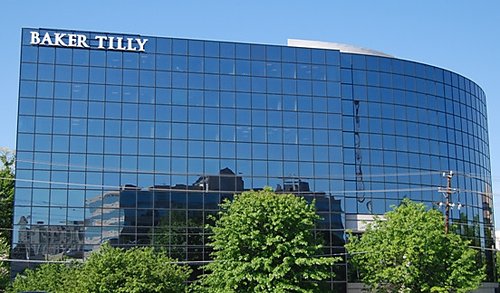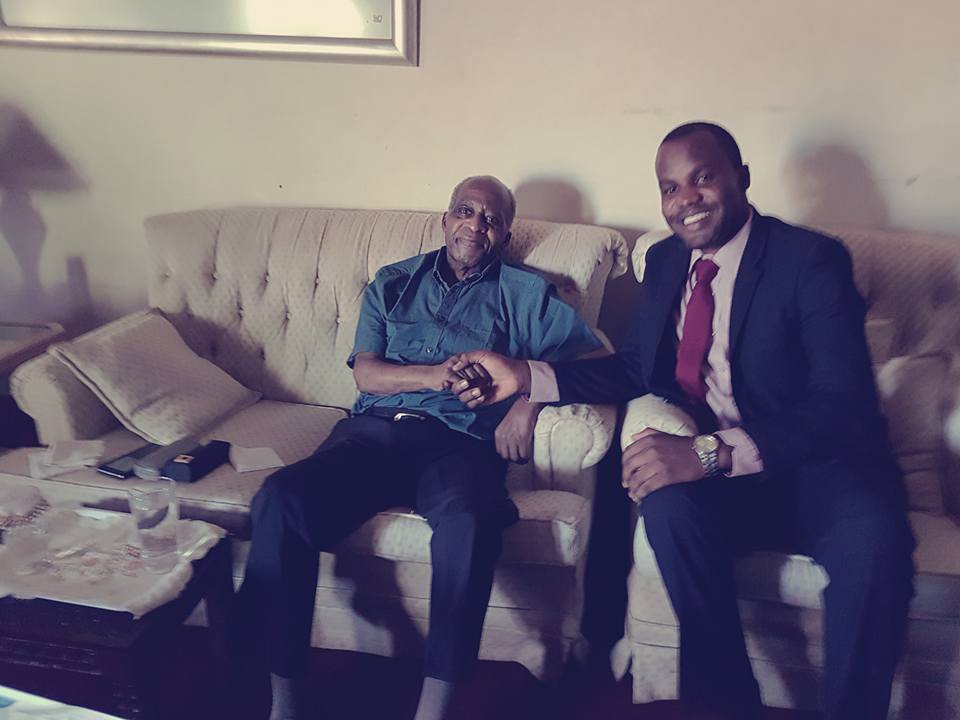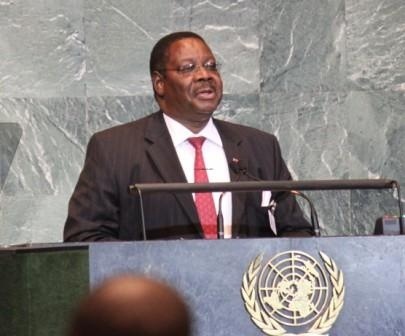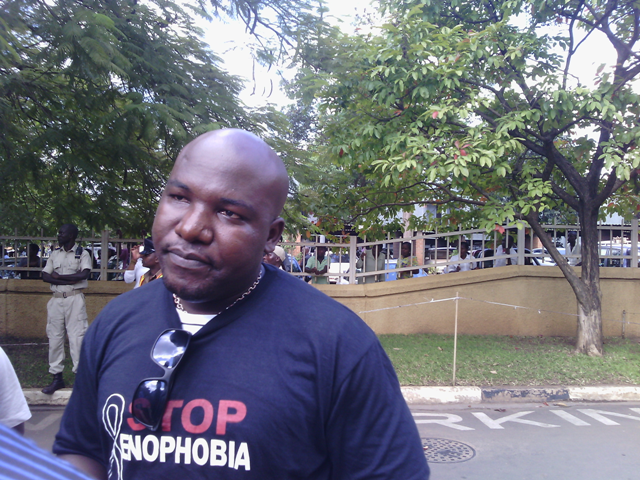The President of a supposedly sovereign State and her ministers have no detailed information about the scandal rocking their government. Yet, an ordinary Briton working for a private firm in his country knows. How is that possible?

British High Commissioner to Malawi, Ambassador Michael Nevin, has defended his government’s actions taken with regard to the forensic report. Malawians have trashed the report of the British audit team because it left out names.
Laurent Dubois, a historian, once remarked; “We are all descendants of the Haitian Revolution, and responsible to these ancestors”. This revolution should be one of key historic lessons taught to people living in oppressed societies, but it’s not.
One can only speculate that the systematic removal of this momentous occasion from popular global history has everything to do with the amazing power and potential the actions of heroes like Toussaint L’Overture – who stood up and fought against slavery – can have on those who still remain trapped in one form of oppression or another.
A Briton knows more about the so-called Cashgate scandal than Malawians
In Saint-Domingue – as Haiti was formerly known – a struggle for freedom, for the emancipation of black men and women ensued in 1791, with devastating consequences on the architecture of slavery and white oppression. It was a struggle of a people who were subjected to violence and dehumanisation at the hands of white slave masters whose only concern was to turn that country into the most productive colony of its time.
“This exceptional productivity,” observes philosopher Peter Hallward, “was the result of an exceptionally cruel plantation economy, one built on the labour of slaves who were worked to death so quickly that even rapid expansion of the slave trade over these same years was unable to keep up with demand”.
Slavery, to be precise, was a systematic exercise that sought to diminish the black man’s humanity while at the same time portraying him as a “brute beast” – someone less human.
This idea would be carried all the way to the colonial era, whose founding idea, much like slavery, was to drive a deliberate agenda for systematically disenfranchising black populations so that they could not have access to the means of production – their land and natural resources. Colonialism, therefore, was a very profitable business for the settler.
Countries like Malawi supposedly stand free today. But this we do more in theory than practice.
Has the looting of Malawi public funds in President Joyce Banda’s government disabled the state from conducting a forensic audit? There’s been speculation about President Joyce Banda’s chances of surviving the Cashgate scandal. Having the British audit our books is arguably as scandalous.
Calling on colonial “masters” for help
The biggest scandal rocking this country is not the fact that there has been systematic looting of public resources. [Between April and September 2013, Malawi’s government lost $30 million USD through fraud, theft and unethical actions.] No. It is the very fact that after the discovery of this looting, we could not afford – President Joyce Banda says – to fund a forensic audit to establish just how heavily compromised our financial management systems have become and who has benefited from that.
The solution? Call on the British government – a ‘former’ colonial master – to ‘aid’ us with a fine-tooth comb and have their people go through our public books. Now that a preliminary report from that exercise is out, most Malawians are unimpressed.
Would the British government ever allow a Malawian firm to audit its financial systems?
Malawians are unimpressed with the fact that the report they have received does not include names of those who are said to have presided over the massive looting of national resources. Rather bizarrely, they are not unimpressed by the fact that a Briton knows more about the so-called Cashgate scandal than they – the people who are bearing the brunt of this malfeasance – do.
To put matters into perspective, a whole President of a supposedly sovereign State and her ministers have no detailed information whatsoever about what went wrong in the government they run. Yet, an ordinary Briton working for a private firm in his country knows. What is this arrangement if it’s not an insult to the people of Malawi who genuinely care about the direction their country is taking?
Would the British government ever allow a Malawian firm to carry out a forensic audit of its financial systems and further allow that firm to keep the most crucial part of that report to itself?
A Malawian activist takes part in a protest in Blantyre. Malawians took to the streets on February 27th 2014 after it was revealed that government officials had made off with $30 million. (Photograph: AFP)
The indignity
The British High Commissioner to Malawi, Ambassador Michael Nevin, has been busy of late, blowing loads of hot air while professing “deep concern” over the “breadth and depth of corruption revealed in this report….” Good for him.
At this most critical juncture in the life of this nation, and 50 years into our Independence, Ambassador Nevin – in defending the actions his government has taken with regards to the forensic audit report – seems to be suggesting that the people of Malawi are not a critical stakeholder in the process of pursuing justice and rebuilding of governance and accountability systems that can inspire the confidence of all citizens going forward.
But that’s just the point. The whole affair with the forensic audit report bears no respect whatsoever for the national sovereignty of Malawi chiefly because we remain a country that refuses to pursue the path of economic independence in order to be as independent enough to fund processes such as a forensic audit. [Up to 40% of Malawi’s annual budget is donor-funded.]
More disturbingly, the treatment of the report by the British government, through its High Commission in Malawi, seems to invoke the main fear of the coloniser on the eve of the colony attaining independence: chaos under black leadership.
Haiti, Hallward further observes, “routinely features as an object lesson in failed economic development and unfinished ‘modernisation’, as deprived of the benefits associated with representative democracy, modern civil society and stable foreign investment”.
The forensic audit report does not belong to Malawi, even if it is about an issue of grave national importance. The sooner Malawians realise this, the better. Of critical importance, therefore, should be the birth of a collective desire for the restoration of our sovereignty, dignity and pride as a people.
No Malawian, in the next 50 years and beyond, should ever, ever, ever have to suffer the indignity of failing to access information that belongs to them. It’s possible.







No comments! Be the first commenter?